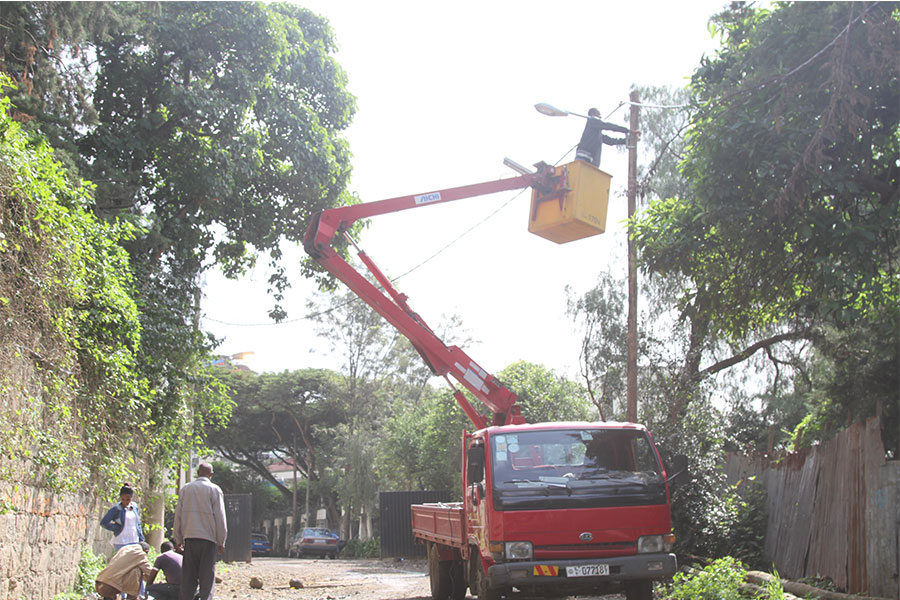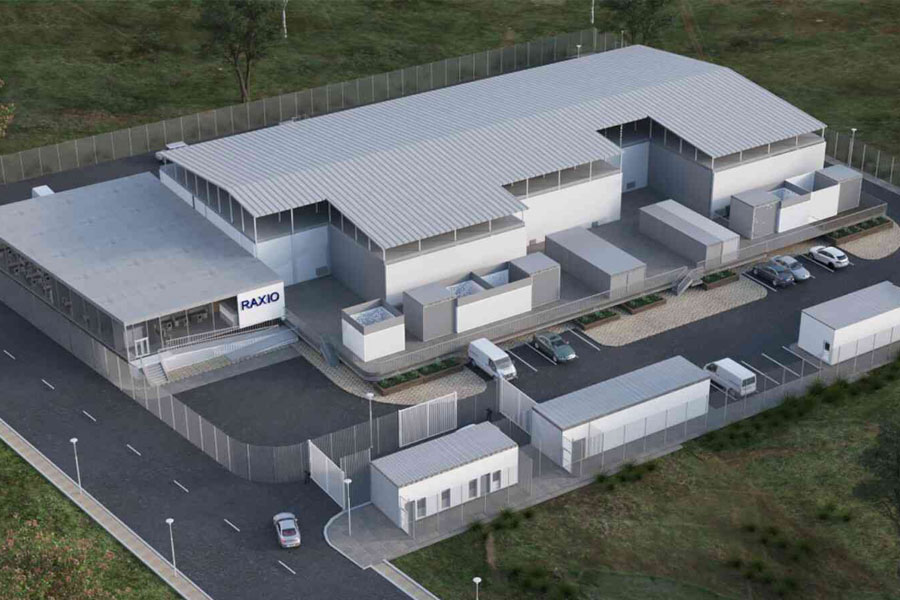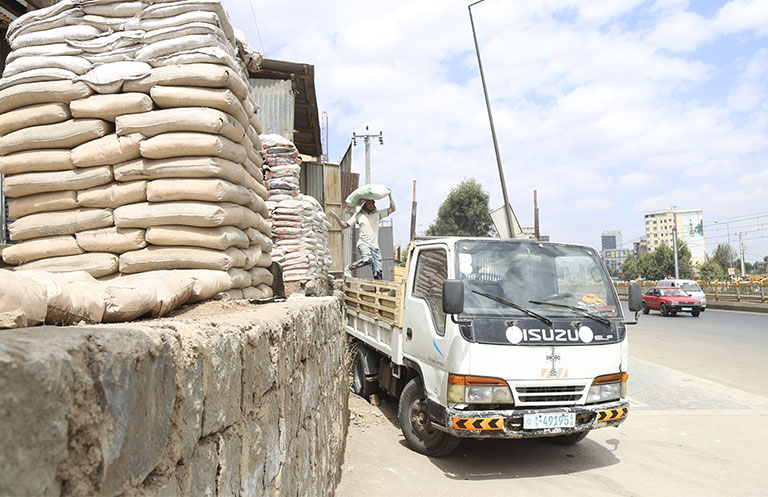
Radar | Jun 21,2025
Aug 17 , 2019
By SELAMAWIT MENGESAHA ( FORTUNE STAFF WRITER )
Finished with an expansion project that consumed half a billion Birr, Organic Export Abattoir Plc has not begun operations at the new facility due to a lack of power supply.
Organic Export Abattoir, which exports organic sheep and goat meat, completed the construction and installation of the machinery of the slaughterhouse, which requires 32kV of electric power to start operations. The transmission lines from the nearest substation are already installed, but it has not had power for two years, according to Alem Mengistu, founder of Organic.
"We've submitted a letter to Ethiopian Electric Power to receive power and are waiting for their response," said Alem.
Resting on 100,000Sqm of land, the construction of the expansion plant began in 2015 and was expected to start operations after six months with 400 employees.
Cogemat Slaughtering Systems, an Italian company that was established in 1988, designed the plant and installed the slaughterhouse machinery.
The facility is equipped with Italian cattle processing machinery, a de-boning room [a system that removes the bones from meat], meat and by-product processing facilities, refrigerators, cold trucks, animal supply trucks, a wastewater treatment plant, biogas systems and an electric power generator.
The expansion is expected to increase the annual production capacity of Organic's business by 30,000tn and generate 75 million dollars from exports.
Located in Modjo, Oromia Regional State, the company was founded by Alem, who also founded Meridian Hotel, which is located in Bole District in the capital. Organic was established in 2006 with 20 million dollars and has been exporting sheep and goat meat for the past 14 years. It operates with 200 permanent and temporary employees at its existing abattoir.
The objective of the expansion is to explore new product categories and enter new market opportunities to generate foreign currency, according to Alem.
In the last fiscal year, the company generated 11.3 million dollars by exporting 2,070tn of processed goat and sheep meat to Saudi Arabia and the United Arab Emirates.
"To meet the increasing demand for beef in the international market, the company will add beef as one of its export products," said Alem.
"We're supporting the company, providing capacity building training, creating market linkages, conducting promotional activities and research," said Mekonen Goshu, deputy director at the Ethiopian Meat & Dairy Industry Development Institute, which was established in 2008 and assists companies in the meat, milk processing, honey and wax processing, animal feed and fish industries.
Mohammed Aman, assistant professor at the School of Agricultural Economy & Agribusiness at Haramaya University, suggests the company work on quality, including sourcing organic meat and livestock free from any disease.
"International buyers want organic and healthy red meat," said Mohammed. "Exporting such kinds of products will help the company generate sustainable revenue."
Mohammed also fears that the company may face a shortage of live animals since there is a broad contraband activity in the livestock market.
Ethiopia has the largest livestock population in Africa and the tenth in the world. Out of the over 300 abattoirs in the country, 11 of them are export-oriented and generated 95.5 million dollars from the planned 192.7 million dollars in the last fiscal year. The revenue came from the export of 19,104tn of meat.
PUBLISHED ON
Aug 17,2019 [ VOL
20 , NO
1007]

Radar | Jun 21,2025

Editorial | Jan 04,2020

Fortune News | Oct 16,2021

Life Matters | Nov 02,2024

Fortune News | Jun 19,2021

Agenda | Apr 20,2019

Fortune News | Sep 10,2023

Viewpoints | Aug 25,2024

Agenda |

Fortune News | Apr 13,2024

Dec 22 , 2024 . By TIZITA SHEWAFERAW
Charged with transforming colossal state-owned enterprises into modern and competitiv...

Aug 18 , 2024 . By AKSAH ITALO
Although predictable Yonas Zerihun's job in the ride-hailing service is not immune to...

Jul 28 , 2024 . By TIZITA SHEWAFERAW
Unhabitual, perhaps too many, Samuel Gebreyohannes, 38, used to occasionally enjoy a couple of beers at breakfast. However, he recently swit...

Jul 13 , 2024 . By AKSAH ITALO
Investors who rely on tractors, trucks, and field vehicles for commuting, transporting commodities, and f...

Oct 25 , 2025
The regulatory machinery is on overdrive. In only two years, no fewer than 35 new pro...

Oct 18 , 2025
The political establishment, notably the ruling party and its top brass, has become p...

Oct 11 , 2025
Ladislas Farago, a roving Associated Press (AP) correspondent, arrived in Ethiopia in...

Oct 4 , 2025
Eyob Tekalegn (PhD) had been in the Governor's chair for only weeks when, on Septembe...